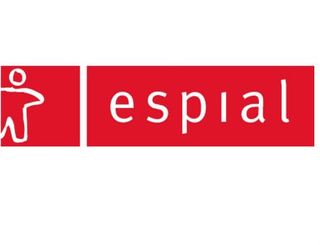Espial: Arris Deal to Add $7.7M in Annual Revenues

Espial execs shed more light on the strategy and financial angle behind its proposed acquisition of Arris’s Whole Home Solution (WHS), a platform that has been deployed by more than 40 small- and mid-sized pay TV operators.
The business will add more than C$10 million (US$7.7 million) to Espial’s financials on an annual basis, with an expectation that the business will grow 20% to 30% per year, Jaison Dolvane, CEO of Ottawa-based Espial, said Wednesday on a call with reporters and analysts.
According to Espial CFO Carl Smith, 25% of WHS revenues is for recurring hosting and support, less than 10% for professional services revenue, with the balance made up of software license revenue. “There will be no hardware product revenue” for Espial coming way of the deal, Smith said.
Espial and Arris did not announce the financial terms of the asset deal, but Dolvane said Espial’s upfront payment for the WHS assets is “not material” to the Ottawa-based company, adding that Espial’s investment into its broader business over the next two years will be “more significant.”
Under the current plan, Espial believes this part of its business can go EBIDTA positive in 2018.
Dolvane estimated that there are more than 2 million boxes deployed that are powered by Arris’s WHS platform. He said the growth plan includes expanding the reach of WHS at existing customers, upselling others, and selling and deploying the offering to new customers.
He said Espial will look for WHS to help it expand in North America, as well as regions such as Europe, where Espial already has a presence (NOS in Portugal, and Tele Columbus in Germany, for example), and the Asia Pacific.
Multichannel Newsletter
The smarter way to stay on top of the multichannel video marketplace. Sign up below.
Though Espial is obtaining the assets of WHS, including about 50 Arris engineers and software developers, it’s not getting into the set-top-making business.
Under its new relationship, Espial will focus on software and user interfaces while Arris will continue to provide media gateways and set-tops. Previously, Arris sold WHS by bundling its software and hardware.
Updated: For set-tops and gateways, Espial said Arris its its "preferred to develop, manufacture, and distribute innovative WHS media gateways and set-tops and remotes to video service providers. As we move forward, there is certainly the option to work with other hardware partners." Espial also intends to include Arris Market, a platform for WHS offered in partnership with Wurl that enables the integration of third-party apps such as Netflix. "Our intent is to include Arris Market – with Wurl as a partner - for the WHS platform. We will aim to finalize the details around this in the days and weeks ahead as we work to close the deal," an Espial official said via email.
Under this approach, the software component is being severed from the hardware, and Espial believes this will allow for the faster introduction of new apps and services for pay TV partners.
“In general, the [WHS] customer base would like to see faster feature innovation and, really, from an Arris, perspective, they felt that partnering with a company like us... is going to allow them to actually achieve that,” he said, noting that Arris will serve as the “primary distribution channel” for the offering, though Espial will also pursue direct deals.
Once the deal is wrapped up, Espial will push forward with a cloud-hosted “video-as-a-service” solution that will also seek to integrate G4, its new set-top software client for devices that run the Reference Design Kit and other platforms. By pairing its software with hardware from Arris and others, Espial will be pitching a platform that can spur IP video migrations.
“Some operators in the market have expressed a desire to have a turn-key, prepackaged, next-generation video solution that can be managed by a supplier,” he said. “Service providers are eager for an accelerated software roadmap.”
While a turn-key offering reduces the amount of customization an operator has, the advantages include faster time-to-market as well as lower capital and operational costs, Dolvane said.
Of course, Espial will be far from alone in pursuing deals aimed at helping cable operators and other MVPDs make the transition to IP and offer a servcie that blends their pay TV services with OTT fare.
Among them, Evolution Digital is trying to do the same with independent operators via its eVUE-TV platform. Comcast, meanwhile, has been pushing a strategy to syndicate and license its X1 platform, though most of its early traction in this area has been with larger operators such as Cox Communications and Shaw Communications.
